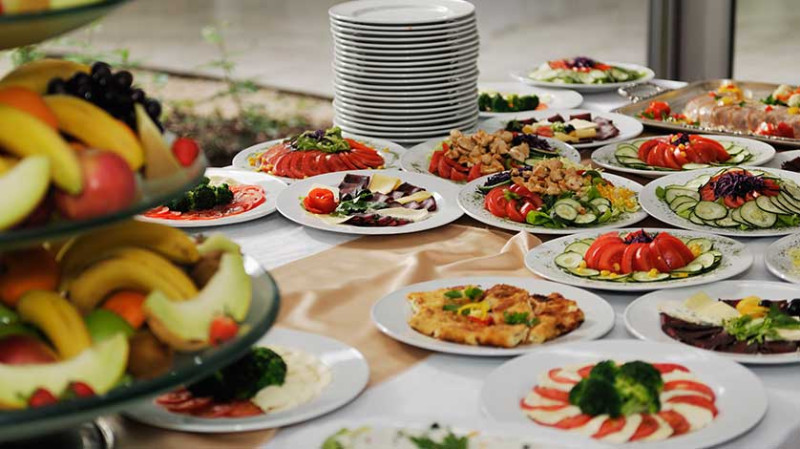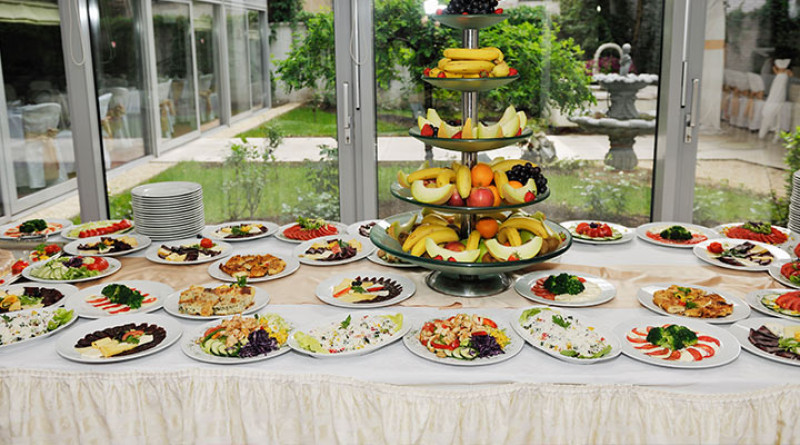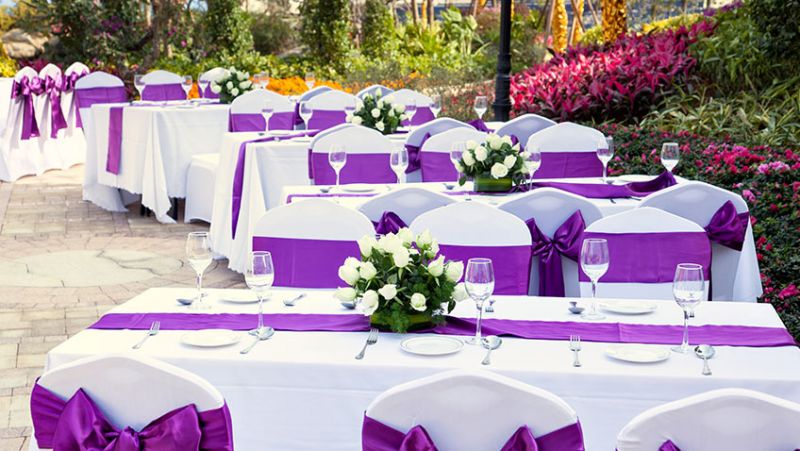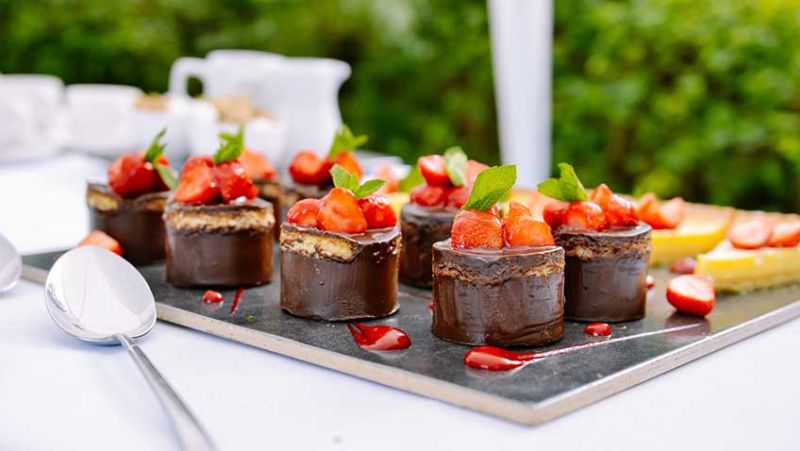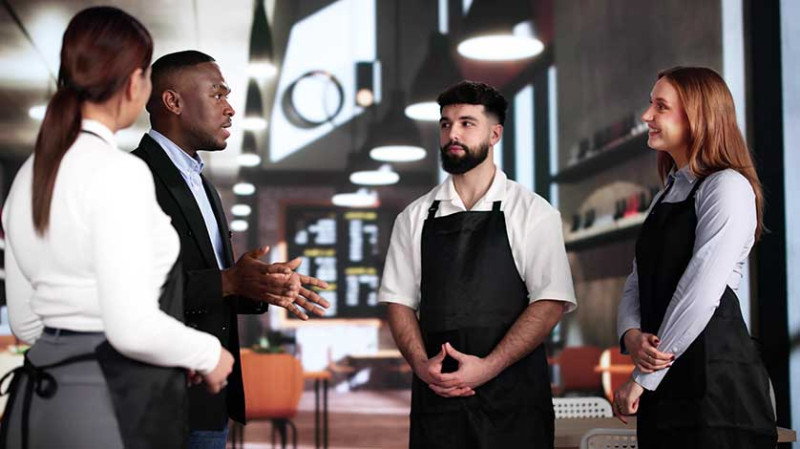
Starting a catering business can be one of the most rewarding and profitable ventures, especially if you have a passion for food, hospitality, and event planning. The catering industry in the United Kingdom is thriving, offering services for everything from weddings and corporate events to birthday parties and private dining experiences. With the right planning, dedication, and knowledge, beginners can turn this exciting opportunity into a successful and sustainable business. In this post, we'll guide you step-by-step through how to start your own catering business.
Why Start a Catering Business?
Catering is an attractive business model for many motivated individuals because it offers flexibility, creativity, and the ability to grow steadily. Unlike restaurants, catering typically requires lower startup costs and offers scalable operations, meaning you can start small and expand over time. Additionally, there’s a growing trend in the UK towards personalised, artisanal, and experience-focused dining, providing even more opportunities for new entrants.
Another key benefit is demand. Regardless of economic conditions, people celebrate weddings, birthdays, and corporate milestones. Events need food, and high-quality catering services are always in demand. If you’re passionate about delivering amazing culinary experiences, you have a fantastic chance to build a loyal clientele base and achieve long-term success.
Furthermore, a catering business allows you to express your creativity — from designing bespoke menus to creating stunning food presentations that leave lasting impressions. It's the perfect balance between art, business, and service.
Step-by-Step Guide to Launching Your Catering Business
1. Conduct Market Research
Before you dive in, it’s crucial to understand your local market. Research your competition, identify gaps in the market, and determine where you can offer something unique. Are corporate events underserved in your area? Is there a demand for vegan or organic catering that isn’t being met? Understanding the needs of your potential clients gives you a major advantage when crafting your services.
Analyse the pricing strategies of competitors, the types of packages they offer, and the feedback they receive from customers. This data will help shape your own business model and marketing approach.
Remember, the more specific your niche, the easier it will be to market your services. Specialising initially, such as focusing on intimate weddings or afternoon tea parties, can set you apart from broader competitors.
2. Create a Business Plan
A well-structured business plan will be your roadmap to success. Your plan should include details like your vision, target market, services offered, pricing strategy, operational plan, and financial forecasts. Think about both your short-term goals (e.g., first 12 months) and long-term aspirations (e.g., expanding into multiple cities or offering event planning services).
Here’s what to include in your catering business plan:
- Executive Summary: A short overview of your business.
- Business Description: The concept, the mission, and the type of services you offer.
- Market Analysis: Insights into your market research findings.
- Marketing Strategy: How you plan to attract clients.
- Operational Plan: Staffing, suppliers, equipment, and logistics.
- Financial Plan: Pricing structure, budgets, and revenue projections.
3. Register Your Business
In the UK, you must register your catering business with HMRC. You must also inform your local council’s environmental health department at least 28 days before you start trading. Environmental Health Officers will inspect your kitchen premises (even if you’re working from home) to ensure they meet health and hygiene standards.
You will need appropriate insurance too — consider public liability insurance, product liability, and possibly employer’s liability if you plan to hire staff. Having the right coverage protects you against unexpected events and builds trust with clients.
Choosing a professional business name and branding is equally important. Your brand name should be memorable and reflect the style and type of catering service you offer.
4. Set Up Your Kitchen
You can start a catering business from a home kitchen, provided it meets the UK’s food safety standards. Alternatively, you might rent a commercial kitchen space to accommodate larger orders and meet demand as you grow.
Here’s a basic list of equipment you’ll likely need:
| Equipment | Purpose |
|---|---|
| Commercial Oven | Cooking large quantities efficiently |
| Food Preparation Surfaces | Hygienic spaces for food prep |
| Refrigeration Units | Safely storing perishable ingredients |
| Cooking Utensils and Pans | Preparing & presenting dishes |
| Transportation Equipment | Ensuring food arrives fresh and intact |
Ensure all equipment complies with UK food hygiene standards and schedule regular maintenance checks to keep operations smooth.
5. Develop Your Menu
Your menu is your product, and its quality can make or break your catering business. Design your menu based on your target market’s preferences and your own culinary strengths. Keep versatility in mind; different types of clients will have different dietary needs, including vegetarian, vegan, gluten-free, and allergen-free options.
Offering flexible, customizable menu packages can make your services more appealing to a wider range of clients. Pricing should reflect both the complexity of dishes and the quality of ingredients you use, without underselling yourself.
Remember to cost every dish accurately — factor in ingredient costs, preparation time, transportation, staffing, and equipment usage when setting prices to ensure profitability.
6. Build a Strong Online Presence
In today's world, most clients first discover businesses online. Having a professional-looking website, complete with stunning photos, detailed service descriptions, menus, and clear contact details, is essential to attract inquiries and build credibility.
Utilise social media platforms like Instagram, Facebook, and TikTok to showcase your culinary creations, behind-the-scenes preparation, and testimonials from satisfied clients. Consistent, visually appealing posts can significantly boost your brand’s visibility.
Search Engine Optimisation (SEO) is crucial. Use keywords like “wedding catering London” or “private chef Manchester” across your website and blog content to rank higher on Google and drive organic traffic.
7. Focus on Customer Service
Exceptional customer service can set your business apart. Be responsive to inquiries, flexible with client needs, and follow up diligently after events to gather feedback. Word of mouth is incredibly powerful in the catering world — one delighted customer can quickly lead to multiple referrals.
Go the extra mile—personal touches like handwritten thank-you notes or small complimentary treats can leave a lasting positive impression. Clients who feel genuinely cared for are more likely to book you again and recommend your services to others.
Final Thoughts
Starting a catering business in the UK offers incredible opportunities for beginners willing to put in the effort to learn, plan, and execute professionally. From finding your culinary niche to building a digital presence and mastering client service, every step adds up to building a stable, thriving business. By following these guidelines and staying passionate, you can turn your love of food and service into a rewarding and profitable career. So, sharpen your knives and get ready to build your dream catering business today!
